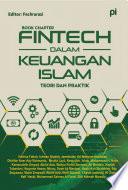
Bunga Rampai: Optimalisasi Peran UMKM di Masa Pandemi Covid-19
Kuliah Kerja Nyata Tematik (KKN-T) merupakan suatu bentuk pendidikan dengan cara memberikan pengalaman belajar kepada mahasiswa untuk hidup di tengah masyarakat secara langsung bersama-sama mengidentifikasi potensi dan menangani masalah sehingga diharapkan mampu mengembangkan potensi desa/kota/daerah dan meramu solusi untuk masalah yang ada. Salah satu program KKN-T tahun 2021 Universitas Muhammadiyah Sukabumi adalah mengenai Optimalisasi Peran UMKM di Masa Pandemi COVID-19 dengan lokasi pelaksanaan KKN di Wilayah Kota Sukabumi. Tujuan utama dari program ini adalah mengidentifikasi keberadaan UMKM yang ada di Kota Sukabumi. Luaran dari program ini adalah tersusunnya buku Bunga Rampai yang berisikan artikel-artikel yang dihasilkan oleh mahasiswa dan Dosen Pembimbing Lapangan selama pelaksanaan KKN-T di Kota Sukabumi.
- ISBN 13 : 6236481903
- ISBN 10 : 9786236481905
- Judul : Bunga Rampai: Optimalisasi Peran UMKM di Masa Pandemi Covid-19
- Pengarang : Leonita Siwiyanti, S.Ag., M.M, Ismet Ismatullah, M.Ak, Acep Suherman, M.Ak, Muh. Thariq Aziz, M.Pd.I, Aris Juliansyah, M.I.K,
- Kategori : Business & Economics
- Penerbit : Yayasan Pendidikan Cendekia Muslim
- Bahasa : id
- Tahun : 2021
- Halaman : 233
- Google Book : https://play.google.com/store/books/details?id=-KtaEAAAQBAJ&source=gbs_api
-
Ketersediaan :
Hampir semua kebutuhan masyarakat dipenuhi dengan berbelanja menggunakan digital e-commerce atau online. Hingga kini, transaksi e-commerce masih mendominasi di Indonesia. Kegiatan Penelitian ini bertujuan untuk membantu UMKM Ulen ...








